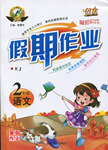题目内容
We _______-word from him so far. Where could he be?
|
A.don’t have |
B.haven’t any |
C.have no |
D.have had no |
D
【解析】略

 鸿图图书寒假作业假期作业吉林大学出版社系列答案
鸿图图书寒假作业假期作业吉林大学出版社系列答案In a national spelling contest in America, an 11-year-old girl was asked to spell a certain word. But with her soft voice the judges were not sure if she spelled the word with the letter A or E. 71 By now, the girl knew she had misspelled the word. But instead of lying and telling the judges she had said the correct letter, she told the truth that she had said the wrong letter. 72
As the girl walked off the stage, the entire audience stood on their feet clapping to applaud her honesty. Later, dozens of newspaper reporters wrote about this 11-year-old girl’s courage and honesty, even when it cost her the contest. 73
Probably the biggest test of our character and honesty is what we would do if we knew we would never get caught.
This young girl could easily have lied, and nobody would have known it but her. But that’s just it: She would know she did wrong. 74
This young girl was strong and smart enough to prize her own conscience and character more than the prize from a spelling contest. Her respect for herself was more important than any respect others might give her for winning a contest. She knew she would have to live with herself and the choice she made at the moment.
75
| A.So she won the contest. |
| B.As a result, she lost the contest. |
| C.The judges wanted to give her another chance. |
| D.It’s been said, “If you cheat, you make yourself cheap.” |
F. They talked it over and finally decided to simply ask her what she had said.
G. But the fact is that she won the biggest contest that day: the contest of her character.